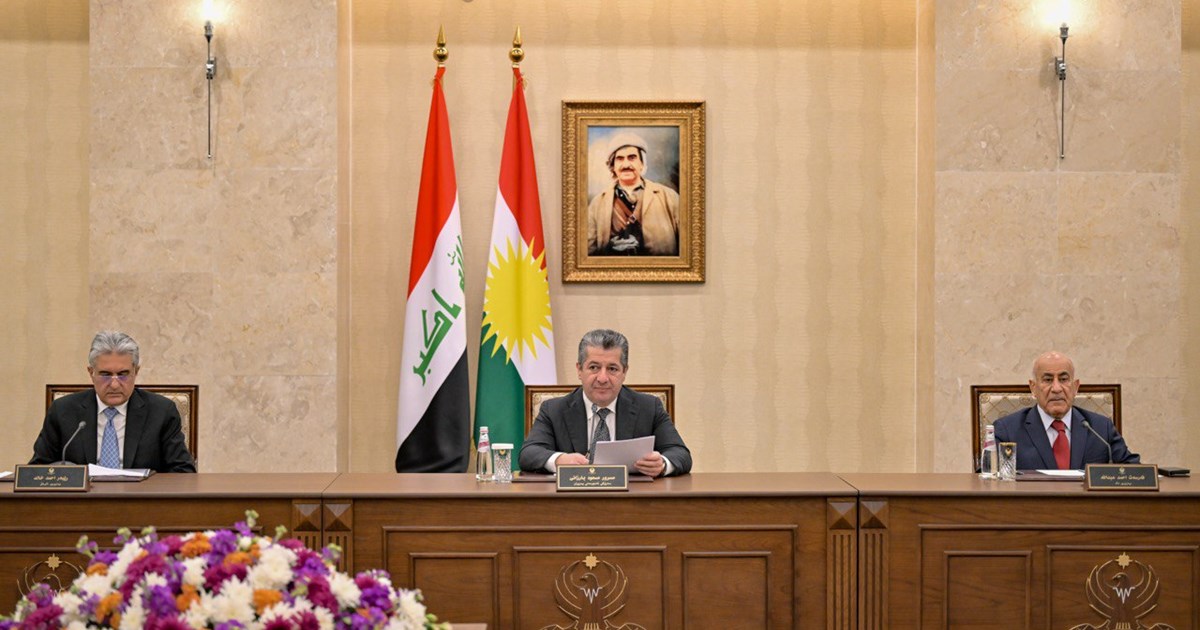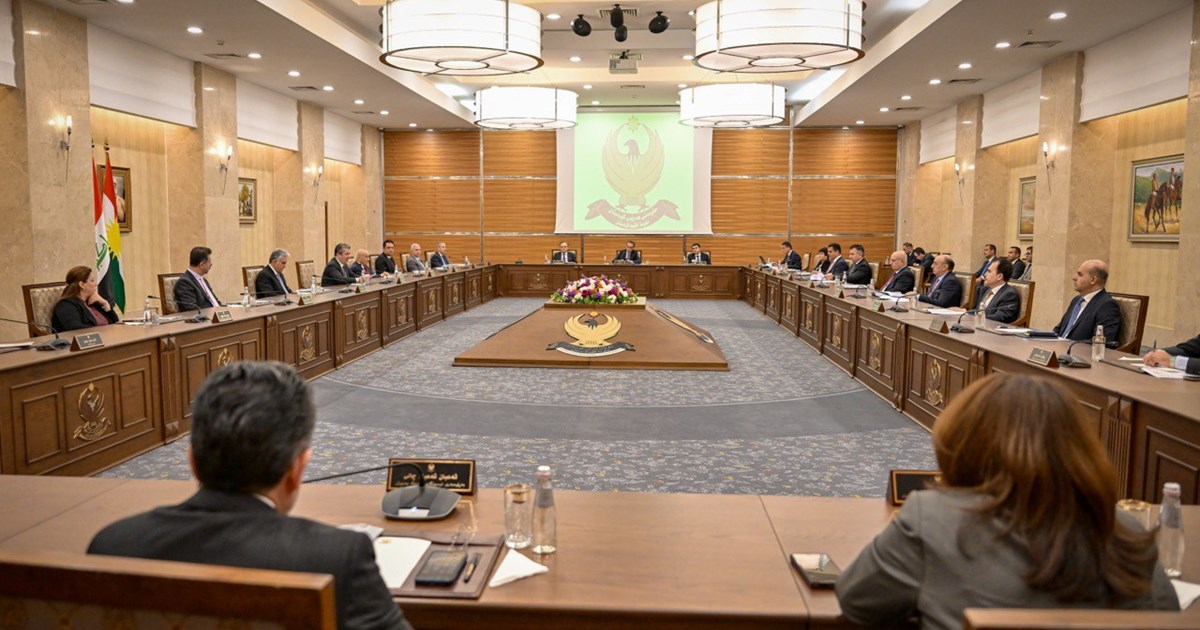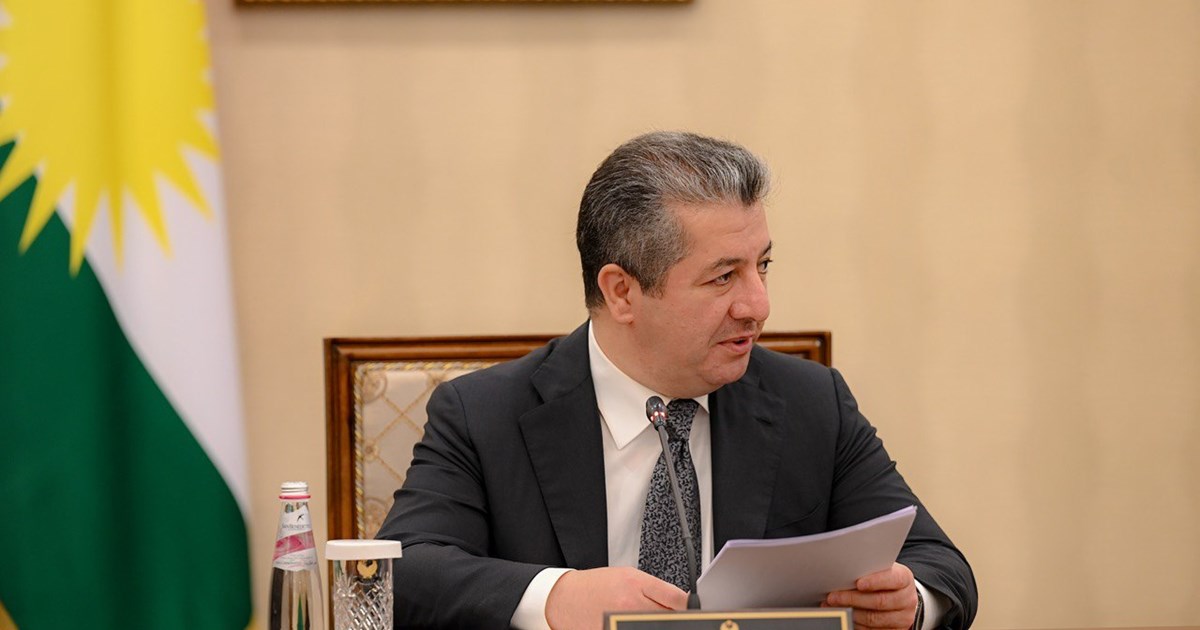KRG Council of Ministers approves national initiative to provide 24-hour power (Project Runaki)

Erbil, Kurdistan Region (GOV.KRD) – The KRG Council of Ministers convened under the leadership of Prime Minister Masrour Barzani on Wednesday.
The first item of the meeting was a review of the draft Council of Ministers' decision regarding the provision of 24-hour power to the public (Project Runaki) in ways that are constant and reliable, and that reduce cost, waste, and protect the environment and public health. The KRG Ministry of Electricity will implement the project.
The Minister of Electricity was joined by the General Directors of Diwan and Distribution to respond to questions and comments.
During the meeting, Prime Minister Masrour Barzani emphasised the importance of the project, recalling electricity reform as a priority of the 9th Cabinet agenda. This agenda, the Prime Minister added, was approved by the Kurdistan Parliament in July 2019. Prime Minister Barzani described the implementation of the project as a years-long demand and called it a fundamental right for citizens that must be prioritised.
Prime Minister Barzani said Project Runaki is a national effort by the Ministry of Electricity and offers numerous advantages. He added that 80% of households will pay less than their current combined payments to private neighbourhood generators and the government.
During his remarks, Prime Minister Barzani urged citizens to consume electricity responsibly — to avoid waste and use power based on their needs — recalling that citizens will now be in charge of their consumption and bills. This approach is expected to lower costs and increase investment in the national electricity grid project, which aims to expand and provide 24-hour power across the Kurdistan Region by the end of 2026.
During the meeting, Minister of Electricity Kamal Mohammed Salih presented an extensive report on the project and its benefits for citizens, as well as the reforms implemented during the pilot aimed at reducing costs for citizens and providing support to low-income households and vulnerable groups.
The Council of Ministers then reviewed and debated the draft decision regarding the provision of 24-hour electricity (Project Runaki). Following this exchange, the Council of Ministers unanimously passed the decision and instructed the Ministry of Electricity to issue the necessary regulations and decrees to facilitate its implementation. A temporary council, led by the Prime Minister with the participation of the Deputy Prime Minister and relevant ministers, was tasked with tracking the project and ensuring its success in ways that serve the public — particularly vulnerable families.
In the second paragraph, the discussion focused on the instructions given to ministries and other government bodies in preparation for the joint audit by the federal and regional auditing boards. This committee is currently preparing a draft joint report on the financial audit of the Kurdistan Region based on the Federal Budget Law for the years 2023, 2024, and 2025.
The Council of Ministers, whilst welcoming coordination between the component authorities of the Kurdistan Regional Government and the Federal Government, also stressed that the Federal Government must recognize the Kurdistan Region as a federal, constitutional entity. It should respect the legal and constitutional rights of the Kurdistan Region and ensure that the Region's budgetary and financial entitlements included in the federal budget are provided without complications. This is especially important given that the Kurdistan Region has fulfilled all technical, accounting, and legal obligations put forward by the federal government, including payroll and pension lists and unique personal numbers for public sector beneficiaries.
In closing, the Council of Ministers added that there are no technical issues pending that could be used as a pretext to withhold the KRG’s public sector financial entitlements, noting that such payments are a legitimate right of public sector beneficiaries, as the Federal Supreme Court has previously affirmed.


